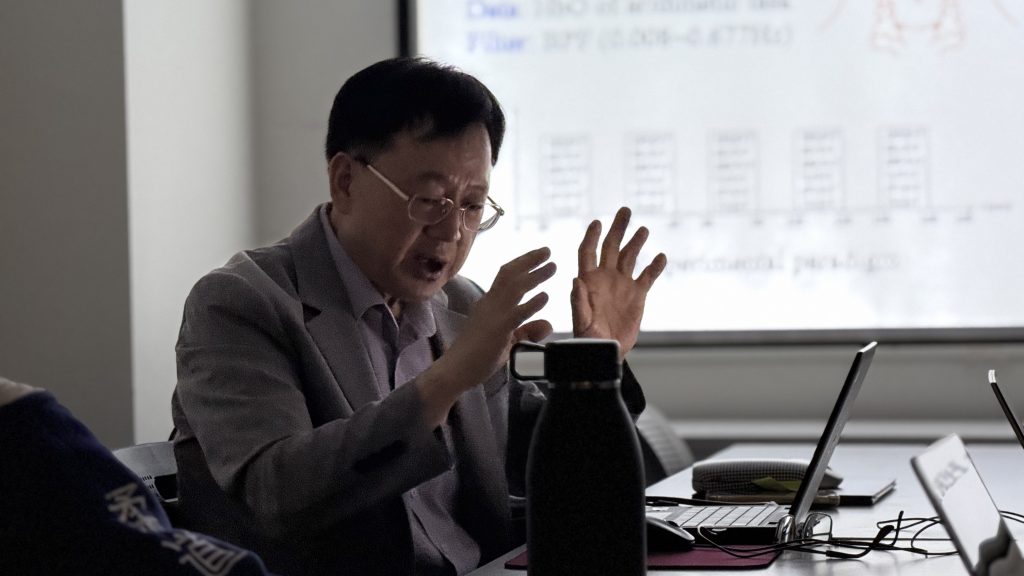We are pleased to host Prof. Keum-Shik Hong, Distinguished Professor at Qingdao University, on July 22, 2025 at 2pm for a seminar at our lab. His talk covered both brain imaging and neuromodulation technologies, offering insights into their application in aging populations and the emerging role of control engineering in neurotherapeutics.
Title:
Brain-Machine Interfaces and Neuro-Modulation: Near-Infrared Light Approach
Abstract: The brain-machine interface (BMI) provides a means of controlling machines and robots for locked-in people by interpreting the neuronal signals from the brain directly. Recently, researchers successfully trained people with head-implanted microelectrodes to control robotic and prosthetic arms. However, noninvasive methods are preferable to avoid the inherent medical risks in microelectrode implantation. Additionally, control engineers can find more opportunities in noninvasive methods. First, the current BCI technologies are briefly overviewed: Various imaging techniques, including invasive and noninvasive methods, are discussed. Second, noninvasive neuromodulation techniques for the elderly will be reviewed. The imaging devices (fNIRS, EEG, and fMRI) are sensors, while the stimulation devices (tDCS/tACS and rTMS) are actuators. Notably, functional near-infrared spectroscopy (fNIRS) imaging will be the primary focus, an emerging noninvasive brain imaging technique that measures the hemodynamic response of the cerebral cortex using near-infrared light (650-1,000 nm). The advantages of fNIRS include its low cost, portability, and excellent temporal resolution, which make it a plausible solution for real-time imaging, compared to fMRI. Recent research indicates the significant potential of fNIRS as a tool for BMI. Finally, to discuss the role of control engineers in the coming aging society, a feedback concept from brain therapy is introduced. The advancements made to date for patients with mild cognitive impairment are discussed. I will introduce some preliminary results on feedback stimulation using tES.

